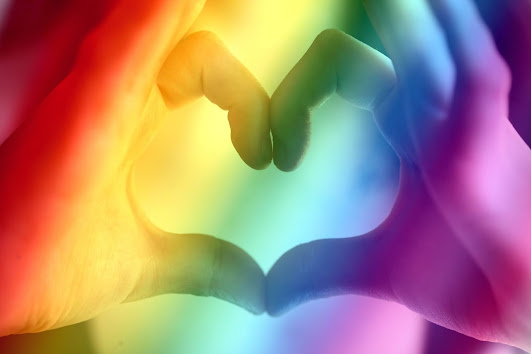Healthy and Supportive Relationships during the Pandemic.
Photo by Sharon McCutcheon from Pexels
Social connections with others is a primary human need, which helps us to thrive and meet our goals. Keeping in contact with friends, family, and the community is important in preventing mental health problems, supporting physical health and living as much as 50% longer. Connecting with others makes us smarter, happier and more productive. It also appears to improve the performance of the endocrine, cardiovascular and immune system. I will explain three different types of connections cultures below.
Cultures of control - Those people who overpower others, have influence and high statusCultures of indifference - This is the type of culture that dominates today, where people are so busy that they do not have time for developing healthy and supportive relationships.
Culture of connection - This is where people make time to communicate with others and form healthy relationships. They will show care for others needs and offer to help. Due to the pandemic, we need this type of culture now more than ever.
Photo by Andrea Piacquadio from Pexels

Here is a video called “Relationships: the missing piece of the wellbeing puzzle” by the Mental Health Foundation:
www.mentalhealth.org.uk/podcasts-and-videos/relationships-missing-piece-wellbeing-puzzle
Photo by Abi Greer from Pexels

Online friendships can also be harmful to us because it isn’t always easy to know who our real friends are in cyberspace. People can still be exposed to unhealthy forms of communication over the internet. Whilst this can be a really positive way to connect with others, especially whilst being at home on lockdown, it is important to remember this does not replace offline relationships. When we have face to face interactions with people, we have the added bonus of a neurochemical response that helps to improve our wellbeing and helps to strengthen the vagal tone.
Photo from Pexels
Here are some interesting facts from the Mental Health Foundation website:
People aged 75 and over are the least likely to have at least one close friend, with 11% having no close friends at all compared to only 2% of those aged 18 to 24.
Having only a few close relationships has been linked to higher rates of depression and stress in older adults.
Having a friend who is happy and lives close by can increase happiness by as much as 25%. Similar results have been found for cohabitant spouses (8%), siblings (14%) and next-door neighbours (34%)
Evidence suggests that men and women treat friendships differently, with women being more likely to have broader, more intimate relationships than men. As a result, men are less likely to discuss personal matters with their friends than women, so maybe less socially and emotionally supported during times of stress and crisis.
A study in relation to negative relationships has stated "the influence of social relationships on the risk of death is comparable with well-established risk factors for mortality such as smoking and alcohol consumption and exceed the influence of other risk factors such as physical inactivity and obesity' and that 'physicians, health professionals, educators, and the media should take social relationships as seriously as other risk factors that affect mortality.
Here is a video from the Guardian, “Staying positive during the coronavirus crisis: Helping Others.”
The Mental Health Foundation also have a nice list of how you can connect with other people, which I have included here.
FIVE THINGS YOU CAN DO
GIVE TIME: put more time aside to connect with friends and family.
BE PRESENT: it can be tempting to check your phone, Facebook messages or even work emails when with family and friends. Try to be present in the moment and be there for your loved ones, and switch our of work mode whenever possible.
LISTEN: actively listen to what others are saying in a non-judgemental way and concentrate on their needs at that moment.
BE LISTENED TO: share how you are feeling, honestly, and allow yourself to be listened to and supported.
RECOGNISE UNHEALTHY RELATIONSHIPS: being around positive people can make us happier; however, our wellbeing can be negatively affected by harmful relationships, leaving us happy. Recognising this can help us move forward and find solutions
to issues.
Photo by Alexandr Podvalny from Pexels
Here is a list of five more things you can do to maintain positive connections with other people during the pandemic.
HAVE ROUTINE: Schedule phone calls or video calls with people who make you feel positive and energised. You could arrange a coffee chat for a group of friends or do an activity you can all enjoy together.
REACH OUT: Reaching out to help other people helps us to feel more positive. You could send a surprise letter or card to someone who has positively impacted your life. There are lots of charitable organisations that you could support, great satisfaction can be found in serving a good cause. This also includes reaching out when you feel you need help, do contact others when you feel stressed or anxious. A problem shared is a problem halved and you will be able to make more rational decisions.
BE KIND: Take care of yourself. You can’t help others if you can’t look after your needs. Also remember to be kind to other peoples needs when they are having a bad day, when we approach with compassion, we are helping to build trust and respect.
EXPRESS GRATITUDE: Negative information can be overwhelming but by directing our attention to the good things (try to write down three good things each day) can help us feel more positive. This helps to form better relationships and increases our resilience. If you are feeling physically and emotionally strong you will also be able to connect well with others.
FIND FIVE POSITIVES: If you do have to say something negative to a close friend, family member or partner, then try to balance each negative comment against 5 positives. Also, remember the tone of voice and body language accounts for most of our communication rather than the actual words that are spoken.

If you are struggling to form friendships, then read on, some of the science behind our communicative responses has much to answer for.
The love hormone Oxytocin has a role in forming relationships with others because it enables social bonding though body language and social responses. It also has a relaxing effect, making us more willing to trust others and make a connection.
The Vagus Nerve also has an important part to play. It is the longest cranial nerve which controls how the body and brain interprets social experiences. Positive social cues including, smiles, eye contact and a kind voice activate brain structures. This leads to the parasympathetic nervous system kicking into action which is responsible for our body’s relaxation response. A higher Vagal Tone will help to have a calmer response, meaning we are friendlier and more tuned into others helping for form connections. People who have a low Vagal Tone can strengthen it by having more positive emotions. Some of the methods to do this includes breathing exercises, yoga, face-to-face connections with others, narrative expressive journaling, cold showers, volunteering, third-person self-talk and the loving-kindness meditation. This meditation focuses on self-compassion and compassion for others, helping to generate positive emotions.
More information on the Vagus Nerve can be found here in the article, “How relationships regulate our nervous system.”
https://www.rehabs.com/pro-talk/how-relationships-regulate-our-nervous-system/
Ultimately, if we engage ourselves in plenty of vagus-nerve has stimulating activities, we are more likely to form new friendships, far less likely to take part in risk-taking behaviours and we will feel a greater sense of well-being.
Please feel free to write any comments or feedback to me below or via my Nottingham Wellbeing Facebook page here at
www.facebook.com/NottinghamWellbeing





Comments
Post a Comment